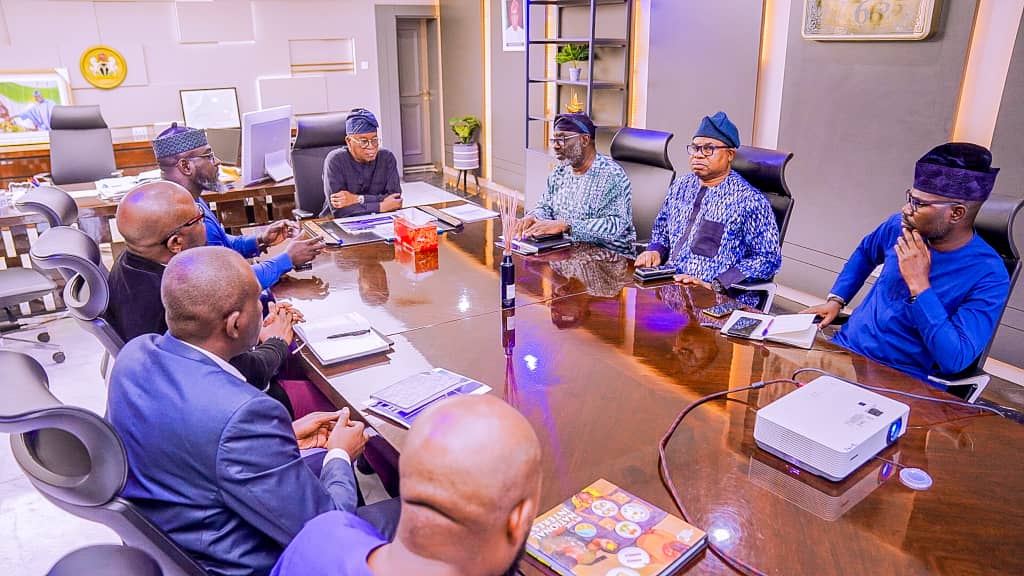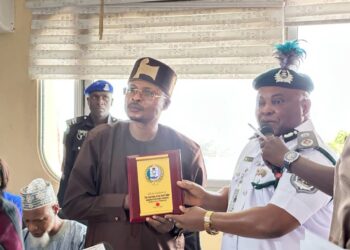
Prior to the emergence of Bola Ahmed Tinubu as President, one request that kept coming up in discussions in the maritime industry is that the industry deserves a dedicated ministry.
Even, shortly before he finished his term as the immediate past Minister of Transportation, Alhaji Mu’azu Jaji Sambo had expressed his support for the call for the creation of the Ministry of Maritime Affairs.
At an event put together for the investiture of Mr. Aminu Umar as the new President of Nigerian Chamber of Shipping (NCS), the minister had canvassed that having a Ministry of Maritime Affairs will enable the nation realize the enormous potentials in the sector.
This has also been the position of notable industry players, who felt that a dedicated ministry would serve the nation and help to harness her potentials as a maritime nation.
So, the prayer was answered in 2023, when President Bola Tinubu constituted the Federal Executive Council. He gave the industry even more than what the stakeholders had been clamouring for. A Ministry of Marine and Blue Economy was created.
No doubt, the old Ministry of Transportation is big. Agencies under the Ministry included: Nigerian Institute of Transport Technology, Nigerian Railway Corporation, National Inland Waterways Authority, Maritime Academy of Nigeria, NIMASA, NPA, and Council for Regulation of Freight Forwarding in Nigeria.
But the new Ministry of Marine and Blue Economy, even though excised from the hitherto Ministry of Transportation, is saddled with a more huge responsibility.
Before the ministry was created, there was hardly any segment of the nation’s maritime sector that did not have of one issue or another.
Without dwelling so much on sectoral challenges, issues that were on the front burner included: Implementation of the Cabotage Act, and the Cabotage Vessel Finance Fund, the National Seafarers Development Programme, the NIMASA Floating Dock, Review of the Concession agreement with Terminal Operators, empowering the Nigerian Shippers Council through adequate a host of other issues.
Scientists describe the blue or marine economy as the ecosystem of economic activities centred on trade and actions around large bodies of water ranging from rivers to oceans, which are managed in a way as to ensure environmental sustainability.
The blue economy is exemplified by the fact that economy of nations extends beyond ports and terminals to fishing, waste management, hospitality (beachside hotels and bars), Power (offshore wind and tidal energy) and transportation (ships, barges, rigs and other floating vessels).
According to the World Bank, the Blue Economy is, “sustainable use of ocean resources for economic growth, improved livelihoods, and jobs while preserving the health of ocean ecosystem.” While the European Union, on the other hand, defines it as, “All economic activities related to oceans, seas and coasts”.
Since May 29, 1999, Nigeria has witnessed 25 years of unbroken democratic experience, and celebrated what has come to be known as ‘democracy day’.
No doubt, democracy has ushered-in new things, it has also engendered reforms in the Nigerian maritime sector; arguably, these have also come with some pains.
Because the maritime sector is one of the strongest pillars upon which the nation’s economy rests, it is natural to expect that the advent of democracy will impact on the sector. And it sure did and it is still impacting.
To appraise the nation’s maritime sector since 1999 will invariably necessitate looking at the local indicators such as: port concession and associated issues, Customs reforms, maritime safety and security and globally, one will need to appraise Nigeria’s status within the comity of maritime nations since the advent of this Republic.
However, the Ministry of Marine and Blue Economy is the biggest democratic gift to the maritime industry.
While not expecting a full-blown impact of the new ministry, we had expected that within a short time, critical issues that were on ground prior to his appointment and the creation of the new ministry would receive the attention of the Minister of Marine and Blue Economy; Mr Adegboyega Oyetola
The critical importance of marine and blue economy presupposes that a highly qualified and hands-on helmsman would be appointed. Without doubting the qualifications of Mr Oyetola, we are not quite comfortable with competence and his score card.
We align perfectly with those who argued that Nigeria lacks control of the natural water resources in the coastal states and coast lines, which has resulted in an inefficient management of country’s waterways mainly located in the South West, South South and South East.
To take maximum advantage of the marine and blue economy, the fiscal arrangement in Nigeria needs to be revisited in such a way that will allow states to have greater autonomy over their local marine resources. This would enable littoral states generate the private capital investments needed to improve the quality of maritime ecosystems and expand blue local economies in sustainable manners.
It is also true that a blue economy will require competitive and efficient use of coastline resources. Sadly, Nigerian ports and maritime facilities are currently costlier than neighbouring countries.
One social menace that will cripple the effect of blue economy is the high incidence of piracy, smuggling, human trafficking and drug peddling. Collectively, these make Nigeria’s maritime business a precarious entrepreneurial activity.
To maximize the gains of blue economy, Nigeria needs to adopt the use of information technology; from stevedoring to cargo handling and inspection, the use of machines has become a compelling necessity to remove the obvious corruption that occurs with multi-point human interface in shipping operations.















